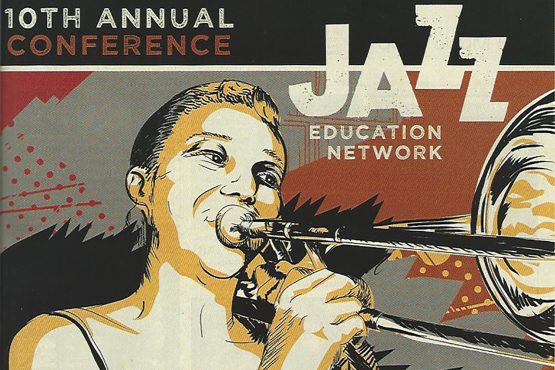Melba Liston was a true unsung hero of Jazz and a trailblazer for female instrumentalist within this art form. No doubt women were and to some degree still are marginalized within Jazz and they deserve much more recognition and accolades for their incredible work, creativity, and accomplishments.
I grew up in a small town in Long Island about 45 minutes from NYC called Lakeview. My parents divorced when I was 10 years old and fortunately I had several male adult mentors who shared their wisdom and guidance. They were like surrogate “fathers” for myself and I cherish their memories immensely. Residing right down the street from my house were: Conrad Buckner (Little Buck) who was an outstanding tap dancer and close friend of Jazz singer Eddie Jefferson; Roger Lewis, who had a very successful business in architecture and he designed Milt Jackson’s home in Queens; and saxophone master Billy Mitchell, who worked extensively with the Dizzy Gillespie Big Band as well as Count Basie Orchestra.
While in high school in the early 1970’s, I met the great Melba Liston at Billy Mitchell’s home. At that time she was traveling back and forth to Jamaica, West Indies where she taught Jazz at the university in Kingston.
She had such a sweet and loving demeanor. I had no idea at that time how important was her contribution to Jazz history. After graduating from NYU in the mid 1970’s I was very fortunate to become friends with piano icon Patti Bown, who took me under her wing. At this time Patti was close with a gentleman named Richard Jennings, who was very instrumental in presenting Jazz at the United Nations. Patti had a concert at the UN and asked me to perform with her quintet: Earl Williams on drums, Bob Cunningham on bass, Harold Vick on tenor sax, myself on alto sax, and of course Patti on piano. Melba and Patti were good friends having worked together with the Quincy Jones Big Band, so Patti asked Melba to write her arrangements. This was the first time I had the opportunity to witness Melba’s genius as an arranger. I also found out about her wonderful work and arrangements for Quincy Jones and Dizzy Gillespie.
Some years later I started performing with the great Randy Weston, who also worked closely with Melba. They were intimately united in the symbiotic relationship of composer and arranger.
Melba arranged and performed on many of Randy’s early recordings, the first of which was Seven Waltzes for Children. She also arranged for many large ensemble recordings in the canon of Dr. Weston. Their most famous and important “oeuvre” was Uhuru Africa in 1960!
Randy mentioned he became so attracted to Melba after hearing her trombone rendition of “My Reverie”, featured with the Quincy Jones Big Band. He always talked about her warm and huge sound. Melba was a true trailblazer who had to overcome many obstacles and adversity, being an African-American, a female, and a Jazz musician.
Besides being an excellent and prolific arranger, Melba was also a very fine composer. The Wilbur Ware institute under the direction of Gloria Ware honored Melba’s legacy back in 2014 at the Manhattan School of Music in NYC. I was part of this celebration and was able to check out many of Melba’s excellent compositions.
On my latest CD Amour (Dot Time Records) I recorded one of Melba’s songs entitled Elvin Elpus, written in dedication to drummer Elvin Jones. In addition an incredible saxophonist from Chicago Geof Bradfield wrote an extraordinary suite in dedication to maestro Liston called “Melba”.
I am so thrilled to see that a children’s book of illustrations on the life of Melba Liston came out and her image is being used to advertise the next JEN conference. On April 23, 1999 we lost a true heroic figure and one who blazed the path for other amazing female performers to follow.
I will always cherish the memory of Melba Liston!!!!!




